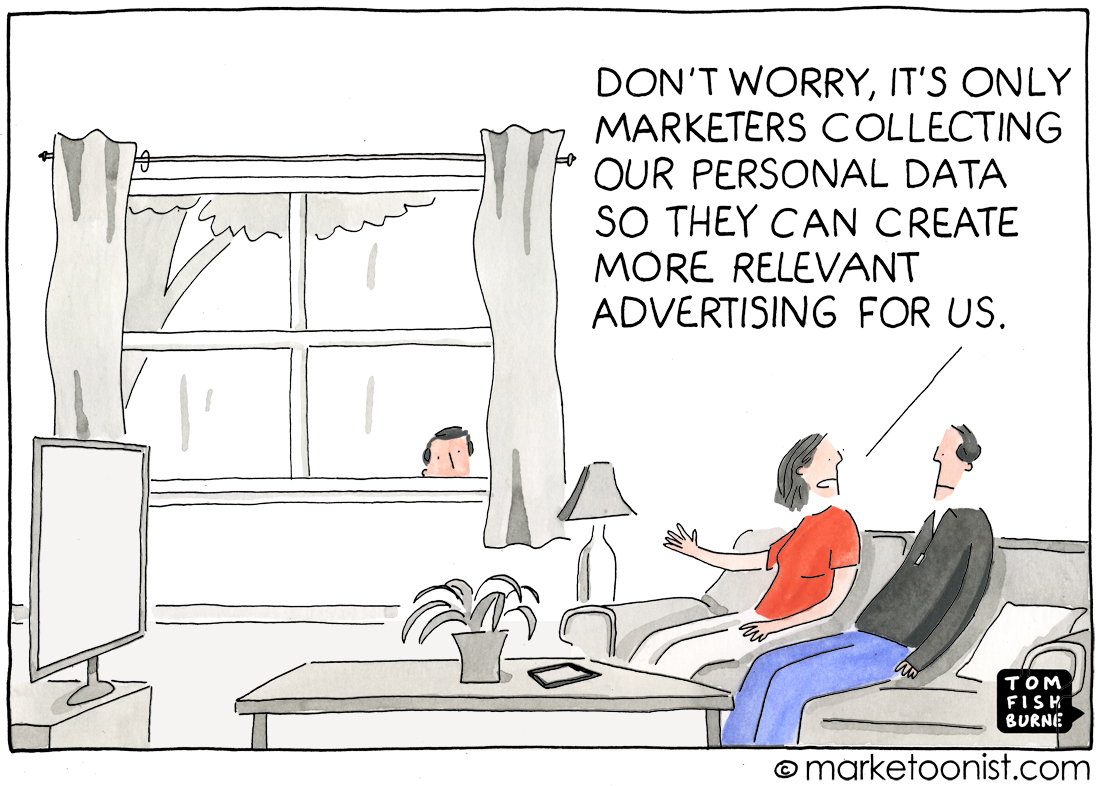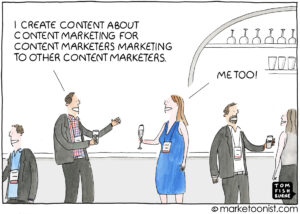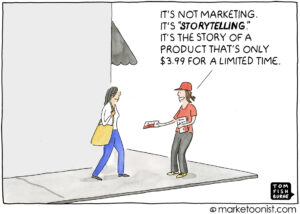There’s a widening gap between how marketers and consumers feel about brands collecting data and tracking customer journeys.
According to a recent report by Edelman and The University of Cambridge Psychometrics Centre, 77% of marketers believe their organization should invest in predictive data and 71% of consumers believe that brands with access to personal data are using it unethically.
Much of this data is collected by tracking customer journeys, which has gotten more complicated as consumers juggle devices over the course of considering and making a purchase. An OMD report revealed that people swap devices 21 times an hour. The traditional tracking cookie falls short.
This has led to a lot of experimentation in different ways of track consumers across devices. The FTC recently pressured a firm called Silverpush to end its Audio Beacon tracking technology. Playing “ultrasonic” sounds inaudible to humans, ads could link behavior across TV, laptops, and mobile devices. A TV ad or web banner ad would play a campaign-specific “ultrasonic” sound picked up by the mobile phone in your pocket.
Silverpush founder Hitesh Chawla explained: “cross-device identification of users is the Holy Grail of advertising.”
Here’s the opposing POV of Alvaro Bedoya at Georgetown Law:
“This tracking crosses all kinds of lines. This is occurring in the home, one of the few places where people still feel a true sense of privacy. People simply do not expect that while they’re watching TV with their families, their phones will be silently listening for sounds inaudible to human ears – that will then allow a company they’ve never heard of to track them more effectively.
“Just because an engineer can do it, doesn’t mean their company should. This breach of trust is just going to add fuel to the already strong fire for people to install ad blocking software.”
Marketers and consumers don’t see these “lines” the same. Consumers expect content, ads, and offers to be personalized and relevant. And yet much of the data tracking that would help personalization and relevance is seen as creepy and invasive. Despite the end of Audio Beacon, there will continue to be experimentation with other technology like “supercookies”, customer keys, profile IDs, and probabilistic “non-cookie” techniques that effectively do the same thing.
It’s an interesting challenge for marketers to navigate where to draw the line. I’d love to hear your thoughts.
Here’s a related cartoon I drew on this topic two years ago.



Ignacio says
The audio beacon thing sure freaks me out. An app that turns your own phone into an informant in your own activities is too much. That’s a clear sign of how ethic barrier are becoming more and more irrelevant. Surely this people don’t do the newspaper cover test anymore?
shann says
The biggest lie is that targeting is done to improve the customer’s experience, when in fact in 99% of times it’s mostly a (perceived) budgetary benefit for the brand. Hyper targeting is not as much a way to go after people we want to reach, as it is about not spending money on those (we think) we do not want to reach.
Ben Baker says
Marketers have become very lazy with all the access to data. They track everything hoping to glean some magical diamond from a pile of sand. The problem is, they are focusing on the what vs. The why. As Marketers, if we are focused in the what we are leading to a world of commoditization where your product truly has no differentiation in the marketplace. However, if we look to the why people consume and find out how we can add benefit to their lives, then we become unique brands, with value to add to the marketplace. In my opinion, the next generation of digital Marketers have lost the nuance of how to ask why and learn from it.
Ram says
Targeting like everything else, depends on how it is employed. In most cases it is about the brand being seen in a relevant moment, that increases chances of it being considered.
But targeting can also very easily go down the unethical route. One report I was reading talked about how Uber users are more likely to accept additional surge pricing, when their battery levels are low. Not sure if this is the kind of targeting I want my brand to be known for
john says
Yeah this is great. Even for us where we devote our careers toward tracking/exploring the customer journey (www.magnipath.com/blog)! (just not to this extent of course)…
Srini says
This whole idea of customer tracking amuses old school (read common sense) guys. If I want something I will find it. You (marketeer) don’t have to bend your back (and logic) to discover my needs and preferences.